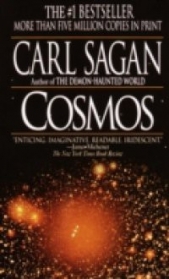The Schopenhauer Cure

The Schopenhauer Cure читать книгу онлайн
Внимание! Книга может содержать контент только для совершеннолетних. Для несовершеннолетних чтение данного контента СТРОГО ЗАПРЕЩЕНО! Если в книге присутствует наличие пропаганды ЛГБТ и другого, запрещенного контента - просьба написать на почту [email protected] для удаления материала
others, never to crave the company of others—sounds pretty lonely, Philip.»
«On the contrary,” said Philip, «in the past, when I craved the company of
others, asked for something which they would not, indeed could not, give—
thatwas when I knew loneliness. I knew it very well. To need no person is never
to be lonely. Blessed isolation is what I seek.»
«Yet you`re here,” said Stuart, «and take it from me—this group is the
archenemy of isolation. Why expose yourself to this?»
«Every thinker must support his habit. Either they were fortunate enough to
have had a university stipend like Kant or Hegel or independent means like
Schopenhauer or a day job like Spinoza, who ground lenses for spectacles to
support himself. I have chosen philosophical counseling as my day job, and this
group experience is part of my certification experience.»
«That means, then,” said Stuart, «that you are engaging with us in this
group, but your ultimate goal is to help others never to need such engagement.»
Philip paused and then nodded.
«Let me be sure I got you right,” said Tony. «If Rebecca digs you, comes
on to you, turns on her charm, gives you her amazing killer smile, you`re saying it
has no effect on you? Zero?»
«No, I didn`t say вЂno effect.` I agree with Schopenhauer when he wrote that
beauty is an open letter of recommendation predisposing the heart to favor the
person who presents it. I find that an individual of great beauty is wondrous to
behold. But I`m also saying that someone else`s opinion of me does not, must not,
alter my opinion of myself.»
«Sounds mechanical. Not quite human,” replied Tony.
«What truly felt inhuman was the time when I allowed my estimation of my
value to bob up and down like a cork according to the regard flowing from
inconsequential others.»
Julius stared at Philip`s lips. What a marvel they were. How exactly they
mirrored Philip`s calm composure, how steadfast, how unquavering, as they
shaped each passing word into the same perfect roundness of pitch and tone. And
it was easy to empathize with Tony`s escalating desire to ruffle Philip. But
knowing Tony`s impulsivity might quickly escalate, Julius decided it was time to
steer the discussion into a more benign direction. It was not time to confront
Philip; this was only his fourth meeting.
«Philip, earlier in your comments to Bonnie you said that your aim was to
be helpful to her. And you`ve also given counsel to others here—Gill, Rebecca.
Can you say more about why you do that? It seems to me there is something in
your desire to counsel that goes beyond a day job. After all, there`s no financial
incentive in offering your help to others here.»
«I try always to keep in mind that we are all sentenced to an existence filled
with inescapable misery—an existence which none of us would choose if we
knew the facts ahead of time. In that sense we are all, as Schopenhauer put
it,fellow sufferers, and we stand in need of tolerance and love from our neighbors
in life.»
«Schopenhauer again! Philip, I hear too damn much about Schopenhauer—
whoever he is—and too damn little about you.» Tony spoke calmly, as though
imitating Philip`s measured tone, yet his breathing was shallow and rapid.
Generally, confrontation came easily to Tony; at the time he began therapy
scarcely a week passed without a physical contretemps in a bar, in traffic, at work,
or on the basketball court. Though not a large man, he was fearless in
confrontation; except for one situation—a clash of ideas with an educated
articulate bully, someone exactly like Philip.
Philip gave no sign he intended to respond to Tony. Julius broke the
silence. «Tony, you seem deep in thought. What`s running through your mind?
«I was thinking about what Bonnie said earlier in the meeting about
missing Pam. Me, too. I been missing her today.»
Julius was not surprised. Tony had become accustomed to Pam`s tutelage
and protection. The two of them had had struck up an odd–couple relationship—
the English professor and the tattooed primitive. Using an oblique approach,
Julius said, «Tony, I imagine it`s not easy for you to say, вЂSchopenhauer, whoever
that is.`”
«Well, we`re here to tell the truth,” Tony responded.
«Right on, Tony,” said Gill, «and, I`ll fess up too: I don`t know who
Schopenhauer is.»
«All I know,” noted Stuart, «is that he`s a famous philosopher. German,
pessimistic. Was he nineteenth century?»
«Yes, he died in 1860, in Frankfurt,” said Philip, «and, as for pessimism, I
prefer to think of it asrealism. And, Tony, it may be true I speak of Schopenhauer
overly often, but I have good reason to do so.» Tony seemed shocked that Philip
had addressed him personally. Even so, Philip still made no eye contact. No
longer staring at the ceiling, he looked out the window, as if intrigued by
something in the garden.
Philip continued: «First, to know Schopenhauer is to know me. We are
inseparable, twin–brained. Secondly, he has been my therapist and has offered me
invaluable help. I have internalized him—of course I mean his ideas—as many of
you have done with Dr. Hertzfeld. Wait—I mean Julius.» Philip smiled faintly as
he glanced at Julius—his first moment of levity in the group. «Last, I harbor a
hope that some of Schopenhauer`s sentiments will be of benefit to you as they
have been to me.»
Julius, glancing at his watch, broke the silence that had followed Philip`s
remark. «It`s been a rich meeting, the kind of meeting I hate to bring to an end,
but time`s up today.»
«Rich? What am I missing?» muttered Tony, as he stood and started toward
the door.
20
Foreshad
owings
of
Pessimis
m
_________________________
Thecheerfulness and
buoyancy of our youth are
due partly to the fact
that we are climbing the
hill of life and do not
see death that lies at
the foot of the other
side.
_________________________
Early in their training therapists are taught to focus upon patients` responsibility
for their life dilemmas. Mature therapists never accept at face value their patients`
accounts of mistreatment by others. Instead, therapists understand that to some
extent individuals are cocreators of their social environment and that relationships
are always reciprocal. But what about the relationship between young Arthur
Schopenhauer and his parents? Surely its nature was primarily determined by
Johanna and Heinrich, Arthur`s creators and shapers; they were, after all, the
adults.
And yet Arthur`s contribution cannot be overlooked: there was something
primal, inbuilt, tenacious in Arthur`s temperament which, even as a child, elicited
certain responses from Johanna and from others. Arthur habitually failed to
inspire loving, generous, and joyful responses; instead almost everyone responded
to him critically and defensively.
Perhaps the template was set during Johanna`s tempestuous pregnancy. Or
perhaps genetic endowment played the major role in Arthur`s development. The
Schopenhauer lineage teemed with evidence of psychological disturbance. For
many years before he committed suicide, Arthur`s father was chronically
depressed, anxious, stubborn, distant, and unable to enjoy life. His father`s mother
was violent, unstable, and eventually required institutionalization. Of his father`s
three brothers, one was born severely retarded, and another, according to a























